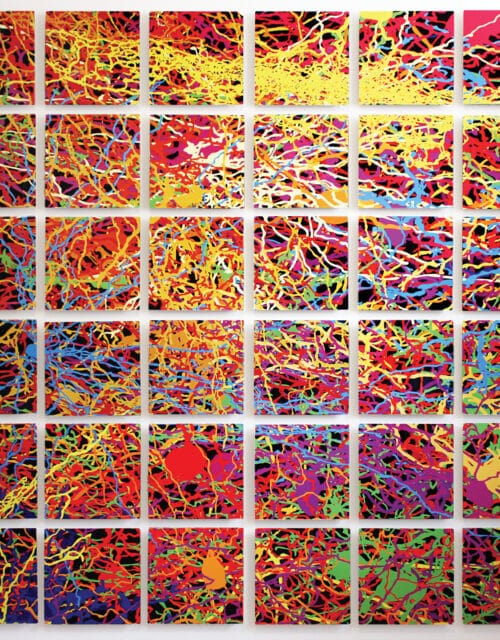In the Gray Areas
What does it mean to push the frontiers of biomedicine if those advances do not or cannot benefit the patients who most need them? What does it say about the world’s top research universities if the women studying and working at those institutions are not safe from sexual harassment? How useful is the work of scientists and scientific agencies if researchers are unable to communicate effectively with citizens and their elected representatives? Essays in the Winter 2023 edition of Issues grapple with the obligations of scientific knowledge—and, crucially, offer ways to address the tensions and problems that can arise from advances in science and technology.
Editor's Journal
The Obligations of Knowledge
Read MoreNew knowledge of all kinds gives society new moral responsibilities, but recognizing these obligations is at odds with the American public’s dialogue around science and technology.
Forum
Coordinating Against Disease
Read MoreRevisiting the Wireless Body
Read MoreCan CHIPS and Science Achieve Its Potential?
Read MoreThe Urgent Need for Carbon Dioxide Removal
Read MorePublic Service Data
Read MoreMissouri Lawmakers and Science
Read MoreThe Vital Humanities
Read MoreTechnology-Based Economic Development
Read MoreSemiconductors and Environmental Justice
Read MoreR&D for Local Needs
Read MoreThe Problem With Subsidies
Read MoreTime to Reform Academic Publishing
Read MoreA New Role for Policy Analysts
Read MoreGene Therapy for All
Read More

Gallery
Mischievous Maritime Art
Perspectives
Change and Continuity in US Export Control Policy
Read MoreExamining history through the lens of US export controls reveals how economic and national security have become so entwined.
Fixing Academia’s Childcare Problem
Read MoreTo build a more inclusive academic STEM workforce, the federal government and universities should explore ways to provide accessible and affordable childcare to graduate students, postdocs, and junior faculty.
What the Ukraine-Russia War Means for South Korea’s Defense R&D
Read MoreTo prepare for future conflicts, South Korea needs to adopt a more inclusive defense R&D structure while shifting the system’s focus toward future science and technology needs.

Interview
“The More Inclusion We Have in Science, the Better Outcomes We’ll Get.”
Poetry
How much chemical disorder …
Read MoreIn her poem “How much chemical disorder…,” artist and poet Sueyeun Juliette Lee explores the power of science and technology to redefine aspects of the human experience as fundamental as when death occurs. “A hundred years ago, cardiac arrest was irreversible. / People were called dead / when their heart stopped beating. / Today death is believed to occur 4 / to 6 minutes after the heart stops beating / because after several minutes it is difficult / to resuscitate the brain …”

Gallery
The Most Complex Puzzle
Real Numbers
To Support Evidence-Based Policymaking, Bring Researchers and Policymakers Together
Read MoreIf researchers want leaders to make evidence-based policies, they must develop ways to support the use of research in policymaking that are themselves based on evidence.
Features
Navigating the Gray Zones of International Research
Read MoreScience funders can enable responsible international collaboration by developing global norms for ethical research that appropriately respond to today’s geopolitical tensions.
To End Sexual Harassment, Make It Everyone’s Problem
Read MoreSexual harassment in scientific and technical fields isolates survivors, and legal compliance practices alienate some even further. Collective bargaining could engage the whole academic community in creating a better workplace.
Stop Hugging Your Postdocs—and Learn to Start Conversations That Prevent Harassment
Read MoreThe long fight against sexual harassment is shifting from compliance to culture.
Computers on Wheels?
Read MoreIn the early 2000s, a metaphor borrowed from consumer electronics helped electric vehicle enthusiasts, Silicon Valley engineers, and policymakers reinvent the automobile.
Ambiguities in Neurotech Regulation
Read MoreBreakthrough neurotechnologies have the potential to help patients suffering from a range of diseases—if regulators can ensure these devices serve those who need them most.
The Complicated Legacy of Terry Wallis and His Brain Injury
Read MoreAn Arkansas man’s unprecedented recovery of consciousness, and his recent death, demonstrate why progress in neuroscience must be matched by new standards of care for patients as well as attention to their civil rights.
Mental Models for Scientists Communicating With the Public
Read MoreTo make research more valuable and enhance trust in science, scientists and institutions must build greater capacity for risk communication.
How Would You Defend the Planet From Asteroids?
Read MoreWhen NASA collaborated with social scientists to engage the public in two-way conversations about the agency’s Asteroid Initiative, the outcome surprised everyone.
Book Reviews

The Art and Ethics of Model Selection
Read MoreThe selection of animal models that can appropriately mimic relevant aspects of a human disease or drug reaction is a vital but underappreciated subject in biomedical research.

Moderation to the Barricades
Read MoreLiberalism, the political theory that animates the liberal democratic republic, appears beset by problems both internal and external. In this atmosphere, a recent book aims to defend and rehabilitate liberalism against its critics and competitors.

A Kafkaesque Border System
It has become clear that the development, deployment, and use of technologies is rarely neutral. Many technologies may be used for both good and evil. And although technologies may provide significant social,… Read More
